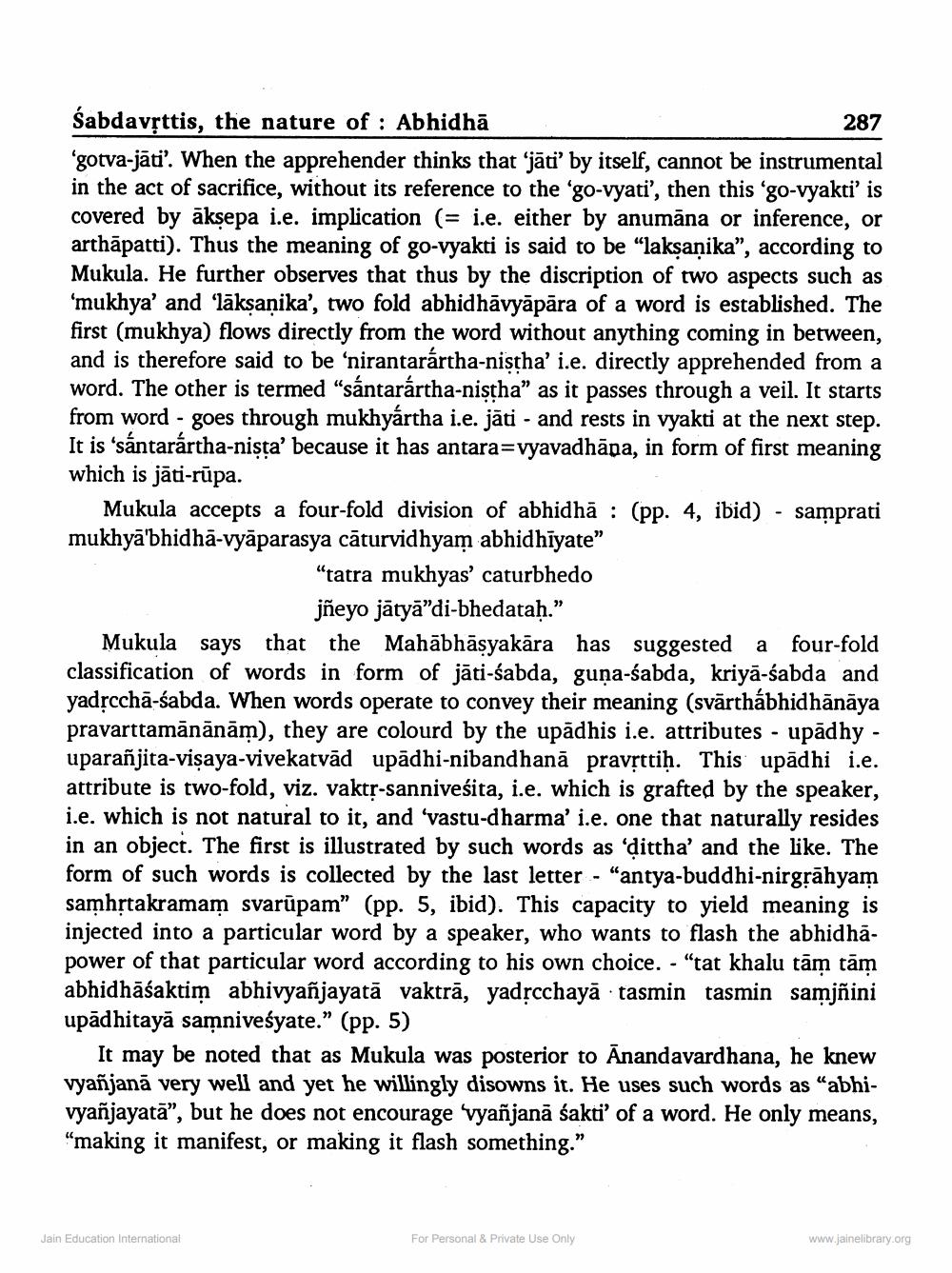________________
Sabdavșttis, the nature of : Abhidhā
287 gotva-jāti'. When the apprehender thinks that 'jāti' by itself, cannot be instrumental in the act of sacrifice, without its reference to the 'go-vyati', then this ‘go-vyakti' is covered by aksepa i.e. implication (= i.e. either by anumāna or inference, or arthāpatti). Thus the meaning of go-vyakti is said to be “laksaņika”, according to Mukula. He further observes that thus by the discription of two aspects such as 'mukhya' and 'lākṣaṇika', two fold abhidhāvyāpāra of a word is established. The first (mukhya) flows directly from the word without anything coming in between, and is therefore said to be ‘nirantarártha-nistha' i.e. directly apprehended from a word. The other is termed “sántarártha-nistha" as it passes through a veil. It starts from word - goes through mukhyártha i.e. jāti - and rests in vyakti at the next step. It is 'sántarártha-nista' because it has antara=vyavadhāpa, in form of first meaning which is jāti-rūpa.
Mukula accepts a four-fold division of abhidhā : (pp. 4, ibid) - samprati mukhyā'bhidhā-vyāparasya cāturvidhyam abhidhīyate”
“tatra mukhyas' caturbhedo
jñeyo jātyā”di-bhedataḥ." Mukula says that the Mahābhāsyakāra has suggested a four-fold classification of words in form of jāti-sabda, guna-sabda, kriyā-sabda and yadịcchā-sabda. When words operate to convey their meaning (svārthábhidhānāya pravarttamānānām), they are colourd by the upādhis i.e. attributes - upādhy - uparañjita-visaya-vivekatvād upādhi-nibandhanā pravrttih. This upādhi i.e. attribute is two-fold, viz. vaktp-sannivesita, i.e. which is grafted by the speaker, i.e. which is not natural to it, and 'vastu-dharma' i.e. one that naturally resides in an object. The first is illustrated by such words as dittha' and the like. The form of such words is collected by the last letter - "antya-buddhi-nirgrāhyam samhrtakramam svarūpam” (pp. 5, ibid). This capacity to yield meaning is injected into a particular word by a speaker, who wants to flash the abhidhāpower of that particular word according to his own choice. - "tat khalu tām tām abhidhāśaktim abhivyañjayatā vaktrā, yadệcchayā tasmin tasmin samjñini upādhitayā samniveśyate." (pp. 5)
It may be noted that as Mukula was posterior to Anandavardhana, he knew vyañjanā very well and yet he willingly disowns it. He uses such words as "abhivyañjayatā", but he does not encourage vyañjanā sakti' of a word. He only means, "making it manifest, or making it flash something."
Jain Education International
For Personal & Private Use Only
www.jainelibrary.org




